“Scenarios and National Goals for Food Security in 2050” a Second Interim Report Within the Israel 2050 Food Security Project

This interim report is part of the process of shaping Israel’s national food security policy for 2050. The report focuses on proposing reference scenarios that influence food security in Israel and deriving goals and objectives for action, with an emphasis on three key dimensions: climate, demographics, and dietary patterns. These dimensions significantly impact the ability to ensure the availability, accessibility, and quality of food sources over time, both during routine periods and in emergencies.
Between excessive centralization and hesitant decentralization

Amendment #43 to the Israel Planning and Building Law of 1995 was the most important step so far to devolve planning powers to the local planning commissions. The powers devolved, however, were minimal – the authority to approve a set category of amendments to local plans which contain only minor change to the existing plans. […]
The Current Energy Situation in Israel as a Departure Point for Future Planning
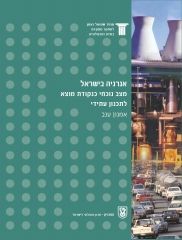
This report presents data on energy consumption in Israel, the principle structure of the energy economy and the activities in this economy in recent years. The object is to focus the problems arising from managing the energy economy here and the need to formulate a long range energy policy, according to agreed objectives, with the […]
Supercomputers In Israel – Feasibility and Alternatives
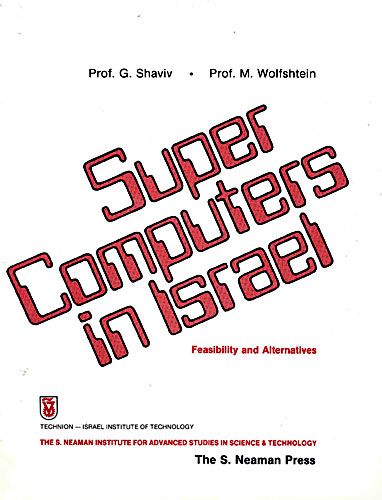
This document discusses the need for super computers in Israel and possible ways to install such equipment. An examination of the current situation in Israel is presented. In addition, the concept of a national central facility for super computing is compared with that of distributed local centers. The report is concerned with the case of […]
A Comparative Analysis of Academic Structure in the Universities and Institutions for Higher Education in Israel

Migration To and From Development Towns in Israel
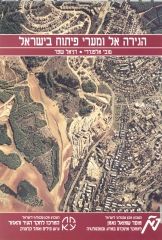
The purpose of this study is to evaluate, on a micro level, the reasons that cause the upper socio-economic class of the population to emigrate from or immigrate to a development town. Such an evaluation may help create a spatial policy that will facilitate the absorption of high-level socio-economic groups of the population into development […]
Absorption of Soviet Immigrants at the Technion
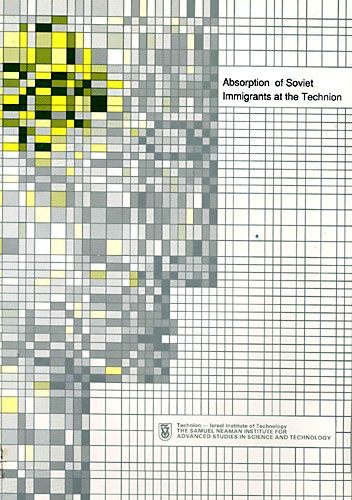
This report describes the Technion’s activities in absorbing immigrant students, scientists, research engineers, the Centre for Pre-University Studies, special courses carried out by the Samuel Neaman Institute, the Division of Continuing Education and External Studies and the entrepreneurial projects already in progress. The report was prepared by the Samuel Neaman Institute, following its pioneering effort […]
Neighborhood Renewal in Israel – Evaluation and Results
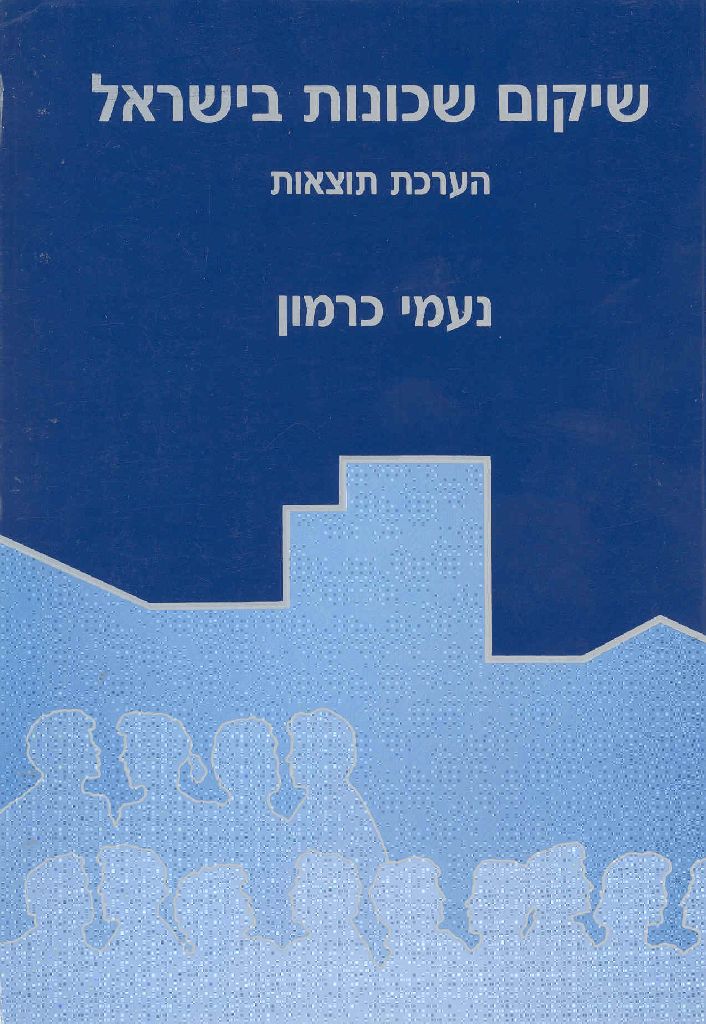
“The Plan for Neighborhood Rehabilitation and Renewal” known as the “Rehabilitation Project” has been in operation in Israel for ten years. Now it leaves the neighborhoods and changes it character. Formally, however, it still includes within its framework 90 neighborhoods countrywide, in which about 15% of the country’s citizens reside. In scope and complexity this […]
The Higher Education System in Israel – Issues, characteristics and unique Aspects
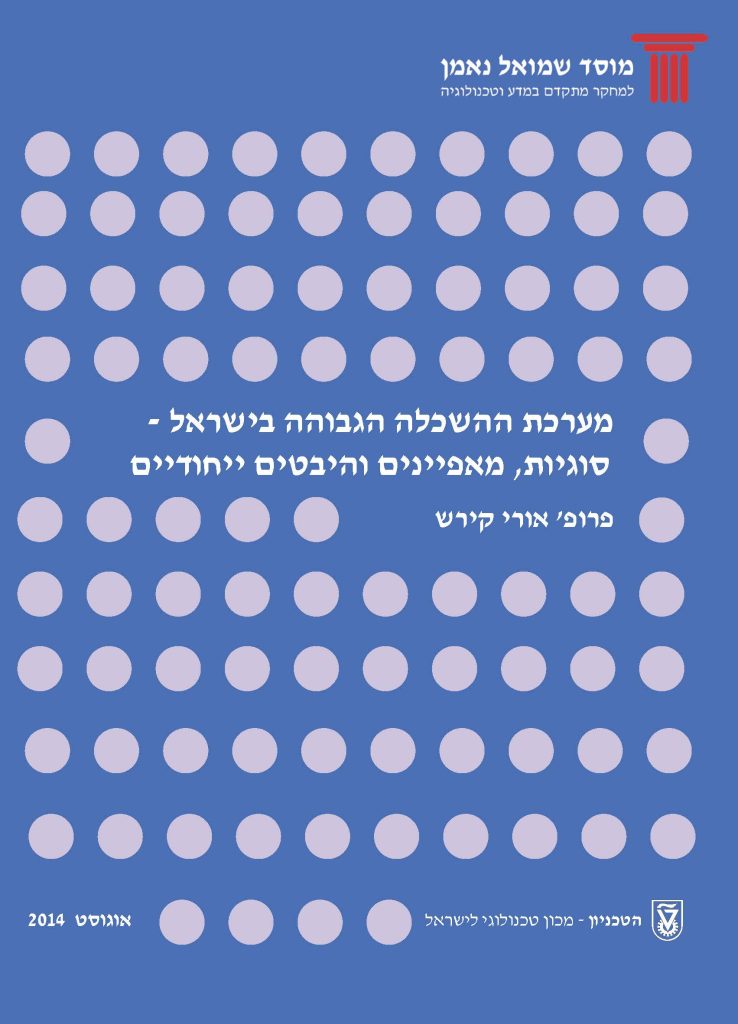
A broad view on the Israeli system of higher education is described. The development of the Israeli system has been influenced by developments in some other countries. Yet, this system is characterized by some unique aspects, including – education of prominence leaders, unprecedented national contribution, and worldwide research excellence – all these with relatively modest […]
Israel in 2030, Liberal Democracy, Populistic or Autocracy? ‘Round Table’ Discussion
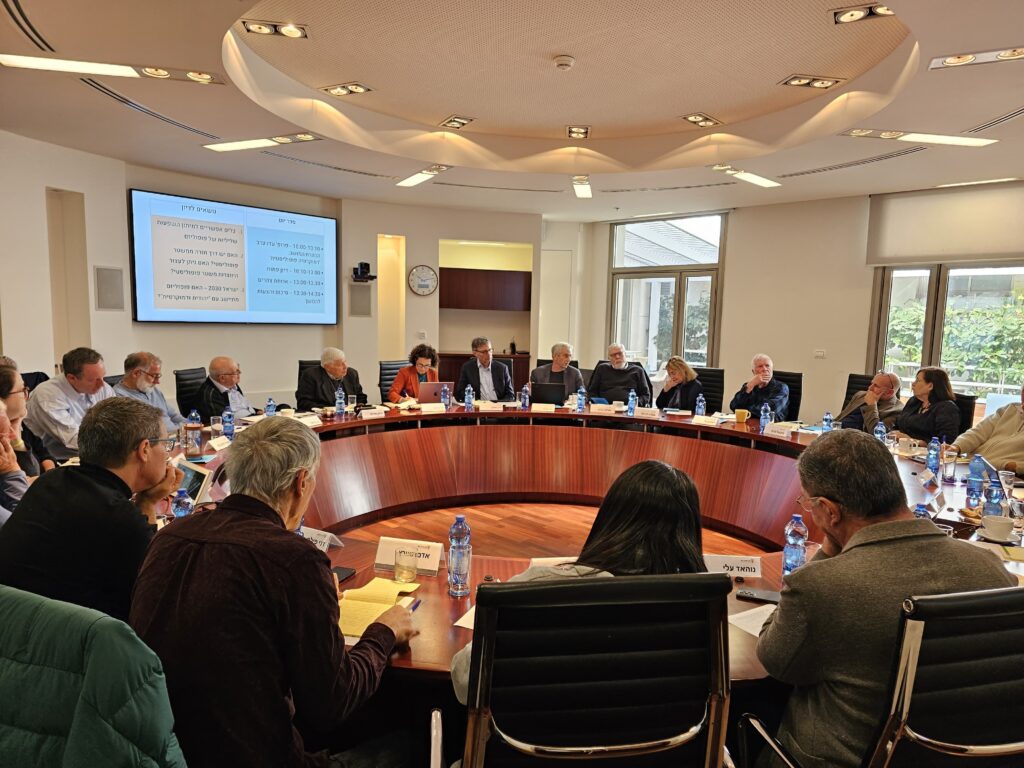
The Economy and Society Forum, ‘Round Table’ Discussion, February 29th, 2024. The round table discussion took place as part of the Economy and Society Forum at Neaman Institute. It focused on democracy in Israel as the cornerstone of any discussion in the realm of economy and society. For several years now, Israeli society has experienced […]
